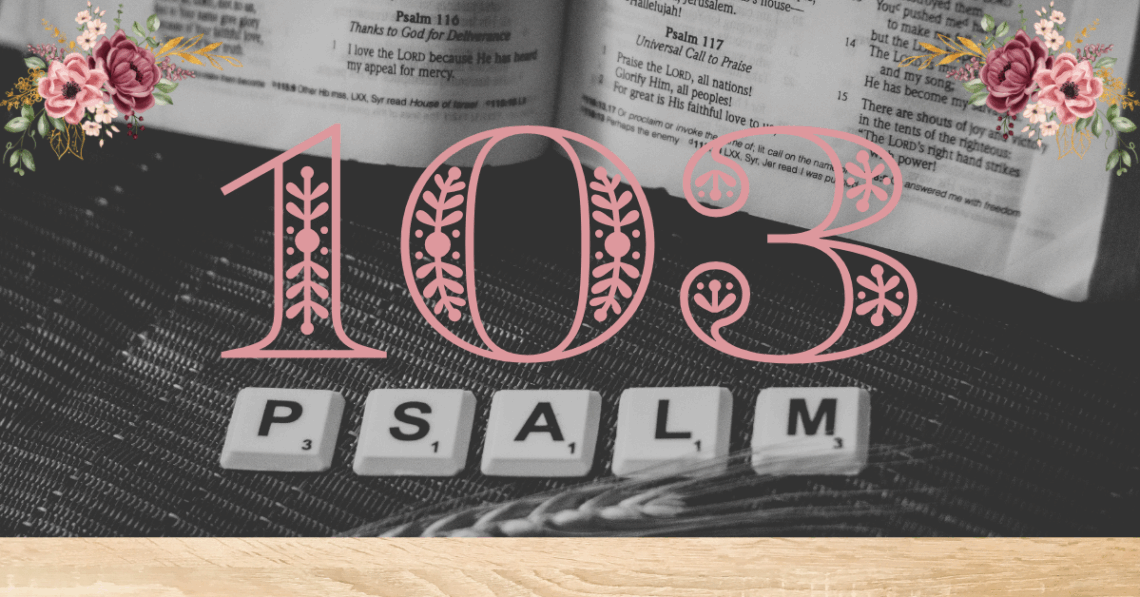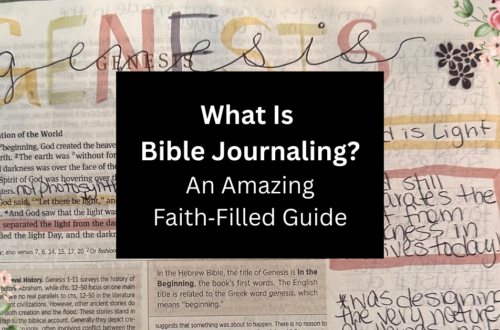Psalm 103 is a psalm of David that bursts forth with praise and thanksgiving. It reminds us to bless the Lord with all that we are and not to forget His many benefits. The psalm transitions from personal praise to a broader recognition of God’s grace, compassion, and enduring love. It is a beautiful meditation on God’s mercy and faithfulness toward His people.
Background of Psalm 103
This psalm is often categorized as a hymn of praise. David, the author, begins by calling his soul to remember and bless the Lord. The structure moves from individual gratitude to a national and cosmic call to worship. It highlights God’s mercy, His forgiveness, and His understanding of our human frailty. Psalm 103 is a poetic and comforting reminder of God’s character and compassion.
What Does Psalm 103 Mean?
Psalm 103 is a call to wholehearted worship. David reflects on God’s goodness—He forgives sins, heals diseases, redeems lives, and surrounds His people with love and mercy. The psalm contrasts God’s eternal love with human mortality and points to His justice and righteousness for all who trust in Him.
Verse Mapping Psalm 103:1–2
“Bless the Lord, O my soul, and all that is within me, bless His holy name! Bless the Lord, O my soul, and forget not all His benefits,” (ESV)
Word Study
Bless – To praise, to kneel in adoration or honor.Soul – The inner being; the seat of emotions, mind, and will.
Forget – To ignore or lose sight of something, especially important truths.
Benefits – Acts of kindness, good deeds, or rewards.
Cross-References
Deuteronomy 6:12 – “Then take care lest you forget the Lord, who brought you out of the land of Egypt…”
Psalm 116:12 – “What shall I render to the Lord for all His benefits to me?”
Paraphrase
Praise the Lord with everything I am; remember and be thankful for all He has done.
Application
Worship should involve every part of us—mind, heart, and strength. Remembering God’s goodness helps us respond with deep gratitude.
Verse Mapping Psalm 103:10–12
“He does not deal with us according to our sins, nor repay us according to our iniquities. For as high as the heavens are above the earth, so great is His steadfast love toward those who fear Him; as far as the east is from the west, so far does He remove our transgressions from us.” (ESV)
Word Study
Deal – To act or respond; in this context, to judge or punish.
Iniquities – Moral faults; sins.
Steadfast love – Unfailing, covenantal love.
Transgressions – Acts of disobedience or rebellion against God’s law.
Cross-References
Micah 7:19 – “You will cast all our sins into the depths of the sea.”
Isaiah 1:18 – “Though your sins are like scarlet, they shall be as white as snow…”
Paraphrase
God doesn’t treat us as we deserve. His love is beyond measure, and He has completely removed our sins from us.
Application
We can live in freedom, knowing that God’s love covers our sins and separates them from us permanently. This truth leads us to joy and peace.
Verse Mapping Psalm 103:13–14
“As a father shows compassion to his children, so the Lord shows compassion to those who fear Him. For He knows our frame; He remembers that we are dust.” (ESV)
Word Study
Compassion – Deep love and mercy, especially in times of weakness or need.
Fear – Reverent awe and respect toward God.
Frame – Our human structure; our fragile, mortal nature.
Dust – A reminder of our origin and mortality (Genesis 2:7).
Cross-References
Isaiah 49:15 – “Can a woman forget her nursing child…? Even these may forget, yet I will not forget you.”
Genesis 2:7 – “Then the Lord God formed the man of dust from the ground…”
Paraphrase
Just like a loving father cares for his children, God cares deeply for those who honor Him. He understands our weaknesses and frailty.
Application
God isn’t distant or cold—He is a loving Father who knows and cares for us in our weaknesses. We can come to Him without fear of rejection.
How Can We Apply Psalm 103 Today?
1. Praise God with Everything in You
Psalm 103 begins and ends with a call to wholehearted worship. Praise isn’t just for Sunday mornings—it’s for every day, every moment.
2. Remember God’s Benefits
Make a habit of recounting God’s blessings. Gratitude refocuses our hearts from what we lack to all that we’ve been given.
3. Rest in God’s Mercy
This psalm reminds us that God’s mercy is greater than our sin. His forgiveness is complete and enduring. When guilt creeps in, return to this truth.
4. Trust God’s Fatherly Compassion
God understands your limitations. He doesn’t expect perfection—He asks for trust. Lean into His love and compassion.
A Closing Prayer
Father, thank You for Your abundant mercy and grace. Thank You for forgiving our sins, healing our wounds, and showing us compassion like a perfect Father. Help us to never forget Your benefits and to bless Your name with all that we are. Teach us to rest in Your love and to live lives of gratitude and praise. In Jesus’ name, amen.
Final Reflection
Psalm 103 is an invitation to worship God with a full heart and grateful spirit. As you reflect on His benefits—His forgiveness, healing, and love—may you be drawn into deeper praise. How has God shown His compassion to you recently? Share in the comments or engage with others to help encourage a spirit of worship and thanksgiving.





